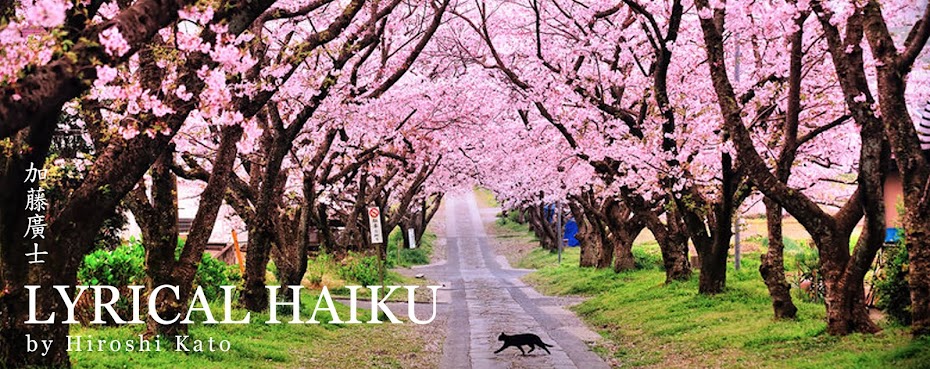by Ishi Kanta
(This speech was first presented at National University of Singapore)
(This speech was first presented at National University of Singapore)
Haiku is limited to 17 syllables and uses a syllabic
structure of 5-7-5 line sequence. In addition, there must be a seasonal element
in the piece of haiku. However, would focusing on keeping to these traditional
rules be sufficient?
When I was on my trips to various countries,
such as New York, Switzerland, Sri Lanka, China and Taiwan, I started to
realize that there is a need to broaden this idea. Although haiku is a
traditional form of poetry, it is now widely spread globally and there has been
a huge increase in the number of haiku enthusiasts all over the world. Many of
them create short poems in their mother tongue and identify them as haiku.
Mainichi Haiku Competition is now in its 19th
year, and it is turning 20 next year. In its “International
Division”, there are 2,500 haikus created by people from
56 countries. Together with the common division and children’s
division, there are over 26,000 haiku submissions.
The world is now starting to appreciate haiku
and is more exposed to these short poems. In many countries, short poems called
haiku are printed in primary school textbooks in various languages, such as
English, French and German. With this, short poems are slowing gaining momentum
in children's literature.
In this rapidly changing era, we are entering a
world so wonderful and yet so complicated and uncertain. Modern people now are
constantly seeking a method to express themselves or to deliver messages in the
shortest and quickest way. However, this need to convey feelings succinctly can
also be seen in the past. In ancient times, short Japanese proverbs are used
for the communion of mind to mind, to implicate and to make ‘a
cutting remark’. These proverbs are able to convey one’s thoughts concisely. With this in mind, haiku may be the
future of communication. Haiku can be labeled as the literature of this era.
Aside from the history of haiku, we can still acknowledge this form of poetry
as modern literature. The most significant component of haiku is its sense of
mystery, as it does not fully convey the story and allows readers to use their
imagination.
This form of Japanese literature used to only be
found in Japan and it is now taking off on a global scale. With its
globalization, we have to re-think the future of haiku; should haiku still be
strictly bound to its traditional structure and rules? Assuming we are to
continue in that manner, how is it possible for haiku to develop and progress
with this fast moving world?
Is exploring new ideas and developments for
haiku not worthy to bend some traditional rules?
My travels have changed my ideas on my view of
Haiku.
- 象の糞ふみつづ灼熱の国へ Sri Lanka
- 象の糞ふみつづ灼熱の国へ Sri Lanka
- 蛇喰うて街自転車に囲まれる China
- レマン湖を泳ぐ太陽直(ひた)と率(ひ)き Switzerland
- セントラルパーク蠛蠔(まくなぎ・目纏いという虫)走者来る
- ストローの二本椰子の実売の正午 Taiwan
Above are a few haiku that I made during my
trips. Although, there were no seasonal words, from these haiku we are able to
see the historical customs, cultures and the different nationalities. Putting
aside the differences of good and bad haiku techniques, is it not more
important to attempt and to explore the abilities to express ourselves in a new
form of contemporary haiku?
Modern Japan now, has benefit enormously from
the advancement of civilization and at the same time retaining the spiritual
features of its traditions and natural surroundings. Perhaps traditional poets
are relying too much on seasonal words and have become prisoners of
self-contained Japanese emotions.
Haiku has reached the height of its popularity
in our contemporary culture, we should now explore what the new world can offer
to our haiku adventures. Haiku can be of scorching deserts or freezing cold
tundra. I hope that we are able to focus more adventures that we explore rather
than the restrictions of traditional haiku.
For more of Mr.Ishi Kanta's work please visit: http://www.enkan.jp/
For more of Mr.Ishi Kanta's work please visit: http://www.enkan.jp/

No comments:
Post a Comment